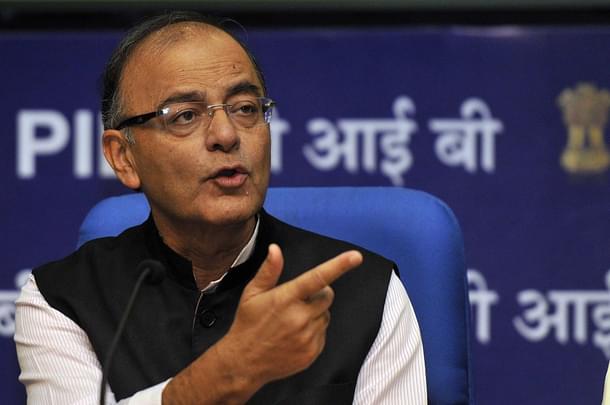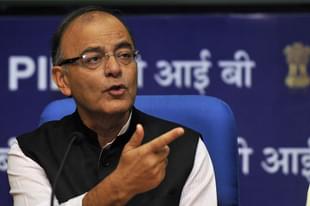Economy
By Asking Banks To Air All Rs 50-Crore-Plus Frauds, Modi Government Is Asking For A Credit Freeze, Delaying Revival
R Jagannathan
Feb 28, 2018, 10:37 AM | Updated 10:37 AM IST
Save & read from anywhere!
Bookmark stories for easy access on any device or the Swarajya app.


Some time ago, the Army chief, Gen Bipin Rawat, raised hackles when he talked of India preparing for a two-and-a-half front war. Two of the fronts were obviously Pakistan and China, with the half referring to Kashmir and the various insurgencies in central India and the north-east.
For the Narendra Modi government, though, it is not enough to project power on these two-and-a-half fronts alone, but on another front: the economy. Unfortunately, recent events, and a series of earlier policy initiatives, suggest that this front is growing weaker. Since it is the front the bankrolls the other two-and-a-half fronts, it is this that needs sustained support.
While we will get – presumably – some encouraging GDP numbers later today (28 February), this refers to the past, a past which had no banking frauds tumbling out of many closets. February, unfortunately, turned out to be a bad month for banks, and March and April could be worse.
The reality is that Modi’s war on corruption and economic crime is just gathering steam, and, from all accounts, there is no certainty that he will win this one in electorally foreseeable time. In fact, with the outing of the Punjab National Bank-Nirav Modi scam, and with the additional discoveries of further cases of hanky-panky in many more big accounts (the Kotharis of Rotomac, the Simbhaoli Sugar case, etc), it would seem that we are yet to hear the worst in terms of banking frauds.
Not only has the PNB scam exposure now been marked upwards from Rs 11,400 crore to Rs 12,700 crore, but private sector banks, including ICICI Bank, now face liabilities in a related case involving Mehul Choksi’s Gitanjali Gems, where the exposure is said to be Rs 5,280 crore for over 30 banks. Choksi is Nirav Modi’s uncle.
In response to the growing clamour for action, and hoist on its own claims of being tough on fraud, the finance ministry is said to be fast-tracking legislation to seize all assets of scamsters fleeing the country, and has additionally asked banks to relook at all loan outstandings of over Rs 50 crore for possible fraud.
While the first legislation makes sense, at least politically, the second one is like asking for more trouble, even assuming it is something that needs to be done. If it must be done, it must be done quietly. But Arun Jaitley seems to have decided that the dirty linen must be washed in public. By forcing banks to do this scrutiny, the finance ministry is essentially asking them to display all their sores in public, which is not going to improve public or market confidence in banks in the short run. It follows that detecting and curbing fraud, rather than expanding the loan book in the months ahead, will be their priority.
The simple import of the second measure is that most public sector banks will freeze big ticket corporate credit for some months. This cannot but slow down the economy and delay a revival. With one decision, which ought to have been whispered in the ears of bank chairmen, the Modi government has just shot itself in the foot and punctured a nascent revival.
The government has, thus, opened a fourth front against domestic financial fraud, and – welcome though this is – it will cost him politically if it results in freezing credit growth and making banks overly risk-averse. We can now be fairly certain that the investment revival expected in 2018-19 will be muted, if not off.
The economy is the front Modi most needs to win, but it is far from certain that its pursuit of probity – whether on tax-evasion or bank NPAs or financial fraud – is going to help. Every other front depends on getting the economic front up and running.
Often, it is not what governments do, but what they delay doing, that proves their undoing. The UPA government could still have pulled off a decent show in 2014 (despite a profusion of scams) if it had not delayed fiscal adjustments to the last two years. Will the Modi government pay the same price for failing to fix broken banks in the first three years of its tenure, leaving the toughest part to the last 18 months?
What the government’s over-aggressive reactions to bank fraud shows is that 2019 cannot be fought on the basis of economic achievements; it will need emotive political gambits to spice up the campaign.
Jagannathan is former Editorial Director, Swarajya. He tweets at @TheJaggi.




